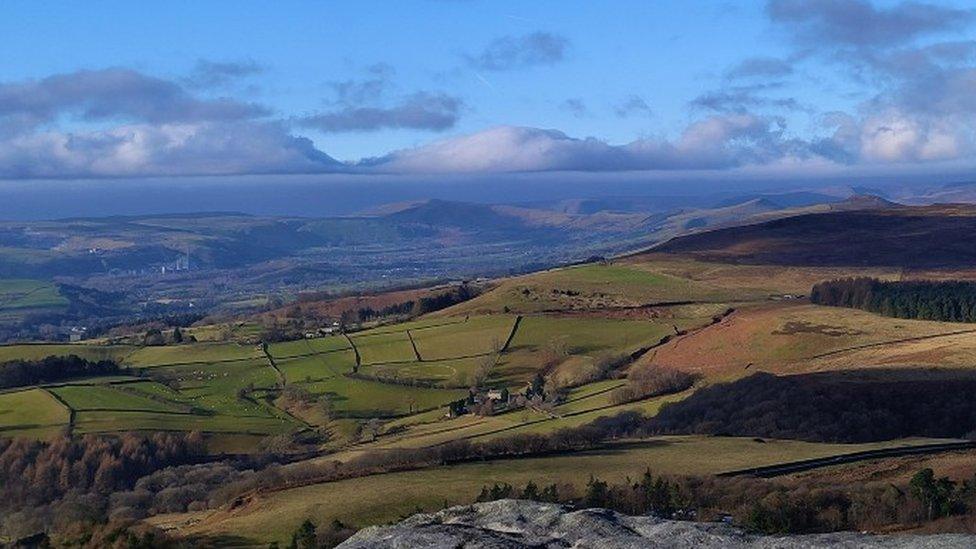Peak District congestion charge idea prompts fears for business
- Published
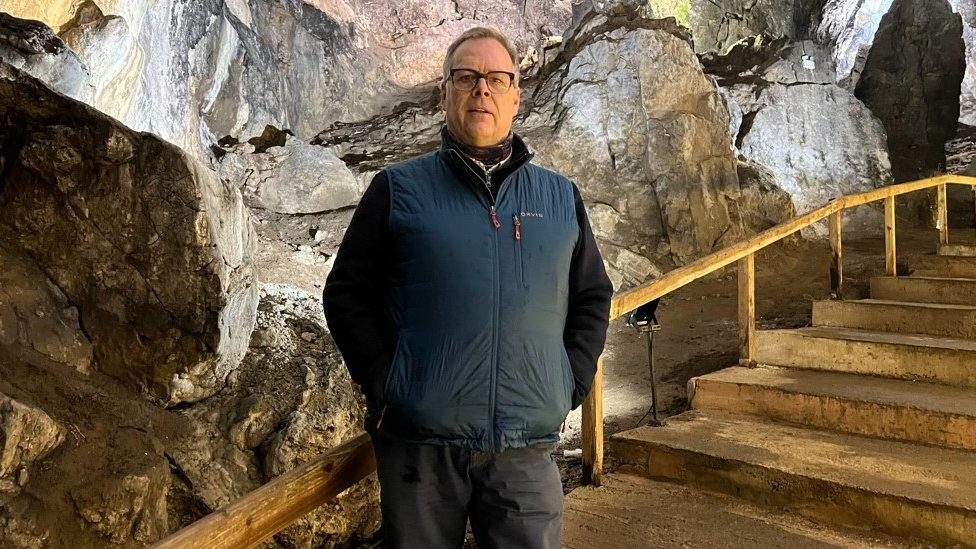
John Harrison said a charge might disproportionately affect people from lower-income backgrounds
A tourist operator has said an idea to introduce a congestion charge in the Peak District would "destroy" many businesses in the national park.
A scheme has been discussed by the Peak District National Park Authority which attracted support from some members.
John Harrison, of the Peak and Speedwell Cavern, said the area's beauty "should be free to everybody".
But Green councillor Charlotte Farrell said traffic levels were unsustainable.
'Natural beauty'
Mr Harrison, co-director of the caverns, near Castleton, said the caves saw 300-400 visitors a day in busy periods.
He said the introduction of any charge would have a drastic impact.
"Everybody who comes to our attraction, or at least 95% of them, come in their cars," he said.
"The public transport options are incredibly limited.
"If they bought in congestion charging I'm sure it would destroy a lot of businesses around here."
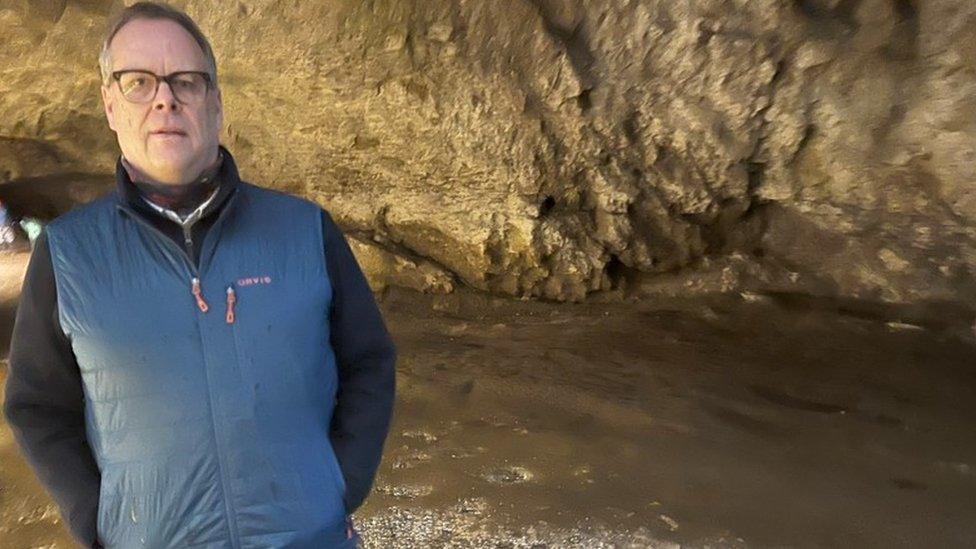
Mr Harrison said most of his attraction's visitors come by car
He added he feared any charge would disproportionately impact less affluent visitors.
"It should be free to everybody to enjoy natural beauty," he said.
"Bring a congestion charge in where you have to pay to get there in the first place, that's gone."
However, Ms Farrell - a Green High Peak councillor and Peak District National Park Authority member - said: "Since the end of the first lockdown, we've seen increasing amount of cars and other vehicles in the park.
"It's really had quite a detrimental affect. The problem is, there isn't the public transport so people drive in.
"The roads, particularly in the honeypot spaces, are choc-a-block at peak times, the roads themselves are congested and parking is an absolute nightmare."
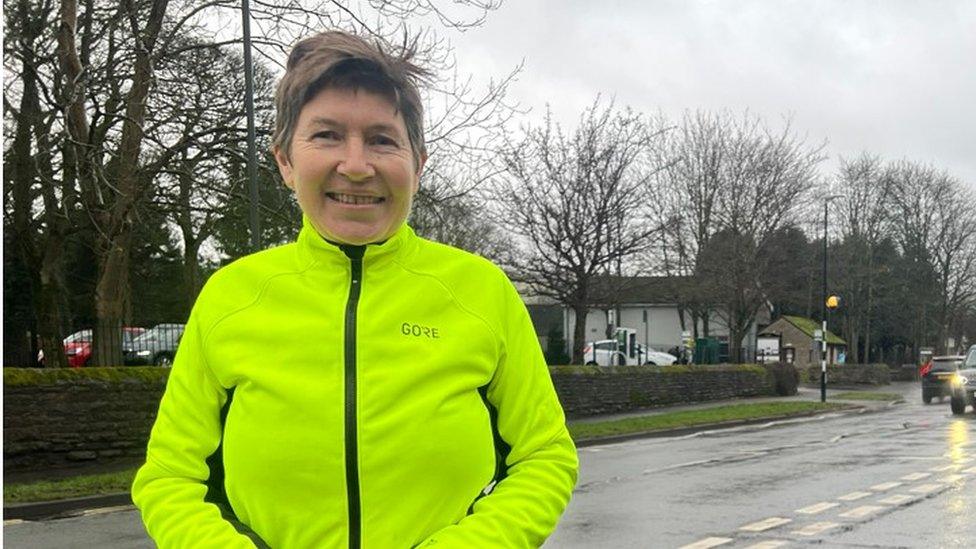
Charlotte Farrell said traffic has increased since lockdown
She said she hoped a charge would prompt people to think about their impact on the environment.
"We're in a climate emergency and we need to think about reducing carbon levels," she said.
She said she would like to see residents included in any charge, with the proceeds put back into improving public transport.
"[It] wouldn't be popular at the start but it has to be equitable," she said.
"If it carries on like this with the amount of cars visiting it's going to be unsustainable.
"People come here because it looks beautiful but it won't look beautiful if there are too many cars."
She was supported by Chris Furness, a Conservative councillor on Derbyshire Dales and a fellow member of the national park authority, who said: "We don't want to stop tourists coming, we don't want to reduce the number, we don't want to affect the businesses.
"It's just we don't want them to come by car; we'd rather they came on public transport and they can't at the moment, it's just not there.
"I have three cars but I use public transport more than the cars because it's the right thing to do.
"If there was a congestion charge, we'd probably get rid of the cars."
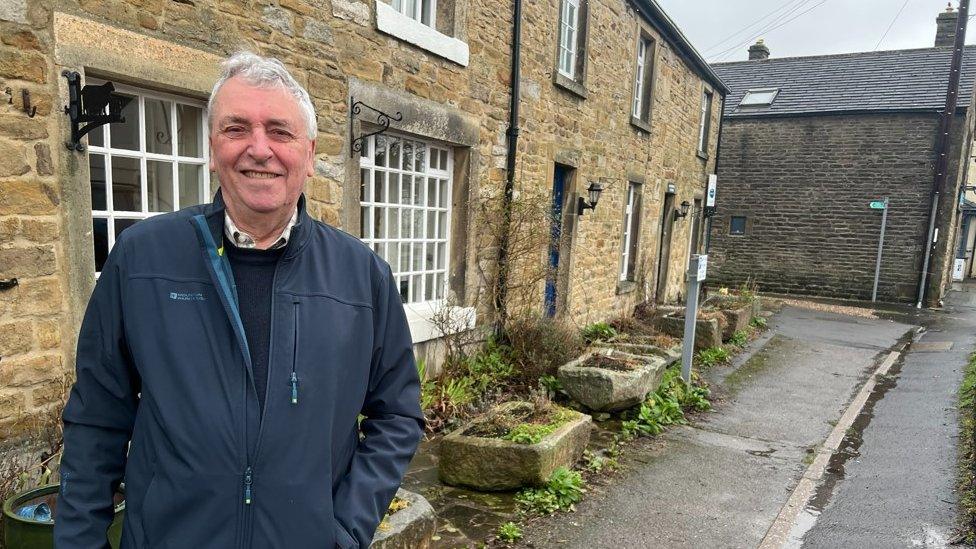
Chris Furness said he would probably get rid of his cars if a charge was brought in
Simon Spencer, the Conservative deputy leader of Derbyshire County Council, said: "I would be fundamentally opposed to the introduction of congestion charging in that park.
"The national park is a living, working environment where people need to travel to and from to carry out their daily jobs and personally I think it would be catastrophic for the tourism industry.
"I personally think the improvement in integrated transport and a strategic way to tackle that is the way forward.
"Introducing charges on people who can ill afford those charges would be a retrograde step and I will be opposing it at this moment in time."
A spokesperson for the authority said the plans were not something likely to be implemented in the near future.
"The National Park Authority has no powers or remit to pursue road user charges in the Peak District.
"Indeed, within the National Park there are seven different highways authorities with responsibility for the roads network.
"Any such scheme, regionally or nationally would require agreement across all of these authorities and would be subject to public consultation.
"Climate change remains perhaps the biggest challenge facing all of our protected landscapes.
"Potential approaches such as road user charging which seek to influence private car use are just one of a number of options that could be considered to help achieve sustainable transport solutions, tackling the wider impacts from vehicles in our national parks."

Follow BBC East Midlands on Facebook, external, Twitter, external, or Instagram, external. Send your story ideas to eastmidsnews@bbc.co.uk, external.
- Published25 January 2022
